Calvin and the Atonement[1]Notes on a Continuing Discussion
Some thoughts from Iain H. Murray arising out of Alan Clifford’s Calvinus: Authentic Calvinism, A Clarification (Charenton Reformed Publishing, 8 Le Strange Close, Norwich, 1996), 94pp.1
This title from Alan Clifford is a monograph of twenty-six pages, plus end-notes, pages of quotations from Calvin, and refutation of some opposing views. It continues the discussion whether the writings of such men as John Owen represent Calvin accurately on the extent of the atonement. The author believes they do not and holds up the French seventeenth-century leader, Moses Amyraut (sometimes better known as Amyraldus), and his Amyraldian teaching, as the true representation of Calvin.2 Our inclination is to believe that this discussion is already worn out but perhaps we are wrong. Dr Clifford presents us with an array of quotations from the Genevan Reformer on Christ dying for the world and he is clearly concerned that such vocabulary is little heard among so many who are regarded as ‘Calvinists’ today.
This whole controversy arises out of the difficulty of relating what is universal about the gospel with what is particular. The gospel is for ‘every creature’ (Mark 16:15), and the failure of anyone to receive Christ’s invitation is due to their own sin – ‘ye will not come to me, that ye might have life’ (John 5:40). On the other hand many texts show that Christ’s redemptive work is only effective for the elect, e.g., ‘Christ loved the church and gave himself for it’ (Eph. 5:25). Arminianism explains the difference between the universal and the particular by affirming that Christ’s death was universal in its intent but that only those who choose to believe will benefit from it. Amyraldianism offers a different explanation: it says, with Arminianism, that Christ has made expiation for all but that divine grace and election have secured that the elect only will believe. There is thus a ‘double reference’ to the atonement, a ‘conditional’ redemption for all who will believe, and an effective redemption for the elect.
Traditional reformed theology rejected this Amyraldian combination of the universal with the particular, holding that God had only one intent and purpose in the death of his Son, the actual salvation of those for whom he suffered. At the same time this reformed theology (in contrast with eighteenth-century Hyper-Calvinism) believed that all men are to be summoned to receive Christ and salvation and they were prepared to leave the question, ‘How can salvation be offered to those for whom it has not been obtained?’ as something which God has not chosen to explain. It is enough to know that all who come to Christ will certainly be saved. The gospel is to be proclaimed universally, not because of any hypothetical redemption, but because God commands it and we have his word that’whosoever shall call on the name of the Lord shall be saved’ (Rom. 10: 13).
Dr Clifford’s argument that Calvin accords with Amyraut, rather than with Owen and traditional reformed theology, rests largely on quotations from the Reformer’s writings which have been raked over many times. These relate chiefly to the biblical texts which speak of Christ’s redemptive work in wonderfully broad terms. With such texts before him, Calvin can often say such things as, ‘the sinner if he would find mercy, must look to the sacrifice of Christ, which expiated the sins of the world’. But such words as these can well be used by a preacher without their being interpreted as though Christ’s redemptive work was universal (a possibility which Calvin himself distinctly denies, e.g., on 1 John 2:2). We see no evidence in what Clifford says to sustain the idea that Calvin held any kind of conditional, hypothetical redemption.
It is however true that Calvin can speak of God’s desire for the salvation of sinners in a manner not always followed by seventeenth-century Reformed theologians and here it might seem that there is more case for regarding Amyraut as his disciple. For instance, Clifford draws attention to such words as these from Calvin: ‘The heavenly Father loves the human race, and wishes that they should not perish’ (Commentary on the Gospel of John, vol. 1,p. 123). ‘It is true that St John says generally, that “he loved the world”. And why? For Jesus Christ offers himself to all men without exception to be their redeemer … Jesus Christ reaches out his arms to all men both great and small, and to win them to him’ (Sermons on Deuteronomy, p. 167).
It is to be granted that the emphasis of these words has not always been maintained by Calvinists, especially, perhaps, when in controversy with Arminianism (as in the seventeenth century). Yet to hold to God’s willingness that the non-elect be saved is a different thing from making that willingness the basis of a divine decree to provide an atonement ‘for all conditionally’.3 This is what Amyraut did with his hypothetical redemption, but the attempt to attribute such a view to Calvin – the idea of an atonement decreed for those to whom it is never applied – signally fails in our judgment. The fact is that belief in God’s desire for the salvation of all is not inconsistent with belief in particular redemption as can be seen in the writings of many of the best reformed writers.4 Even Owen, whose views Clifford regards as antithetical to evangelistic preaching, is ready to urge the willingness of Christ to receive all and to make clear that the blame for unbelief does not lie in any failure on God’s part: ‘the way is open and prepared, and it is not because men cannot enter, but because they will not.’5
Dr Clifford enters into detailed refutations of the views of various authors and we cannot see how any reply in kind would be profitable. The few who want to read detailed discussion of the interpretation of Calvin, and of points of history, will need to study this monograph, and the sources, for themselves. That no man has mastered Calvin is clear even from the author’s opening citations from Calvin on 1 Timothy 2:4 where he uses the Reformer’s Commentary but strangely not his Sermons on Timothy and Titus. In the latter (p. 152) Calvin in fact interprets God’s ‘will’ in the same way as Owen, contrary to Clifford’s claim. Both divines believed that it is God’s unchanging will which is there referred to by Paul.
Dr Clifford believes that a man cannot be a true ‘Calvinist’ if he fails to believe with Amyraut in a redemption which is both universal and particular. As A. A. Hodge says, this opinion has been held ‘by some men of talent who have been honest professors of the Calvinistic system,’ and he considered that ‘when used by men otherwise orthodox’ it is not heresy but only evidence of ‘confused thought’.6 That being so, it would be regrettable to see debate prolonged among men who in other respects share a common faith, and yet there is, as Hodge also points out, another consideration to be taken into account. More is involved here than mere discussion over what Calvin meant in this or that passage. Belief that a real expiation has been accomplished by Christ for all without exception has come, sooner or later, to affect the whole meaning of the atonement. For if Christ rendered satisfaction for the sins of all men as their substitute then something more than the work of the cross is necessary to actually save anyone (in Amyraut’s view, an additional decree). The death of Jesus, in itself, is thus reduced to nothing more than something potentially saving, whereas Scripture represents that sacrifice as complete and perfect. All that is necessary for the application of redemption was secured when he purchased his people with his own blood. So Amyraldianism has been regarded as dangerous because it has too often proved to be transitional to more serious error. That is why Reformed men of the present day are generally strongly averse to the view Clifford proposes. Who is the ‘authentic Calvinist’ is a question of little consequence to most of us, but it is of consequence that those who have majored in the claim that Calvin was not a ‘Calvinist’ have too commonly been men with no zeal either for the preservation of biblical Christianity or for such preaching as marked the Puritans and their successors. Our friend Dr Clifford will forgive us for saying that in this monograph we believe he is in the wrong company.
Notes
- This article first appeared in The Banner of Truth magazine No. 398 (November 1996).
- For a fine summary of Amyraldianism, see Roger Nicole, The Encyclopaedia of Christianity, ed. E.H. Palmer, Vol. 1 (Wilmington, Delaware: National Foundation for Christian Education, 1964), pp. 184-93. Unhappily this valuable encyclopaedia never proceeded beyond a third volume in 1972.
- As George Smeaton writes, this is the essence of the Amyraldian position: it supposes ‘a double and a conflicting decree; that is, a general decree, in which He was said to will the salvation of all, and a special decree, in which He was said to will the salvation of the elect. To Christ also it ascribed a twofold and discordant aim, viz. to satisfy for all men, and to satisfy merely for the elect. As a reconciling system, and an incoherent one, it aimed to harmonise the passages of Scripture, which at one time seem to extend Christ’s merits to the world, and at another to limit them to the church’ (The Apostles’ Doctrine of the Atonement, p. 541). See also Smeaton, Christ’s Doctrine of the Atonement, pp. 468-72.
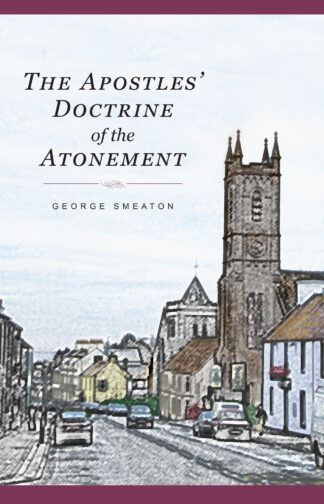
price Original price was: $30.00.$27.00Current price is: $27.00.Description
Some thoughts from Iain H. Murray arising out of Alan Clifford’s Calvinus: Authentic Calvinism, A Clarification (Charenton Reformed Publishing, 8 Le Strange Close, Norwich, 1996), 94pp.1 This title from Alan Clifford is a monograph of twenty-six pages, plus end-notes, pages of quotations from Calvin, and refutation of some opposing views. It continues the discussion whether […]

price Original price was: $30.00.$27.00Current price is: $27.00.Description
Some thoughts from Iain H. Murray arising out of Alan Clifford’s Calvinus: Authentic Calvinism, A Clarification (Charenton Reformed Publishing, 8 Le Strange Close, Norwich, 1996), 94pp.1 This title from Alan Clifford is a monograph of twenty-six pages, plus end-notes, pages of quotations from Calvin, and refutation of some opposing views. It continues the discussion whether […]
- For example, Charles Hodge on 1 Tim. 2:4 in Princeton Sermons, pp. 18-19;
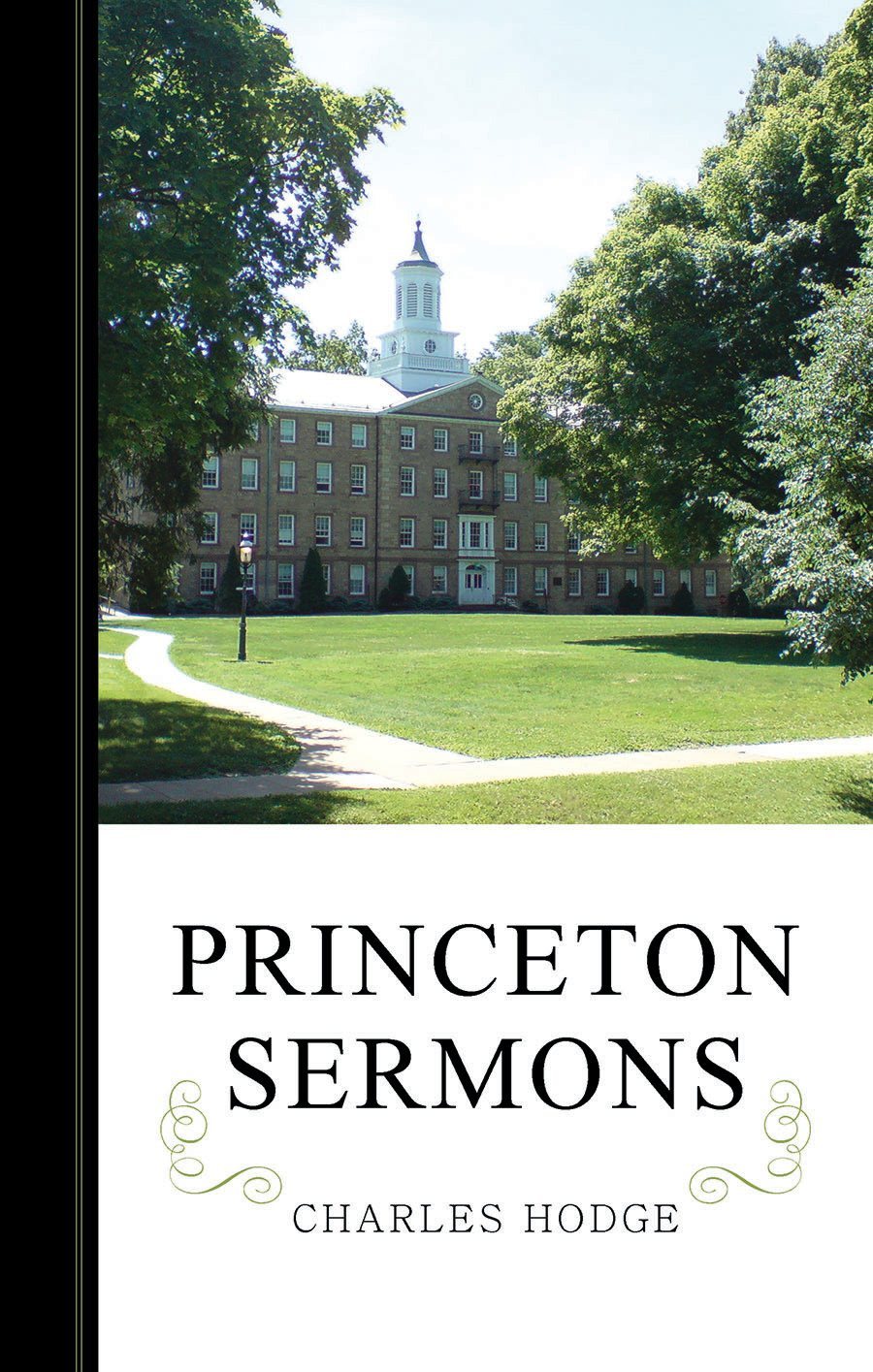
Princeton Sermons
Outlines of Discourses, Doctrinal and Practical
price Original price was: $28.00.$25.20Current price is: $25.20.Description
Some thoughts from Iain H. Murray arising out of Alan Clifford’s Calvinus: Authentic Calvinism, A Clarification (Charenton Reformed Publishing, 8 Le Strange Close, Norwich, 1996), 94pp.1 This title from Alan Clifford is a monograph of twenty-six pages, plus end-notes, pages of quotations from Calvin, and refutation of some opposing views. It continues the discussion whether […]
W.G.T. Shedd, Calvinism: Pure and Mixed, p. 100;

Calvinism: Pure and Mixed
A Defence of The Westminster Standards
price Original price was: $10.00.$9.00Current price is: $9.00.Description
Some thoughts from Iain H. Murray arising out of Alan Clifford’s Calvinus: Authentic Calvinism, A Clarification (Charenton Reformed Publishing, 8 Le Strange Close, Norwich, 1996), 94pp.1 This title from Alan Clifford is a monograph of twenty-six pages, plus end-notes, pages of quotations from Calvin, and refutation of some opposing views. It continues the discussion whether […]
R. B. Kuiper, God-Centred Evangelism, pp. 30-31;
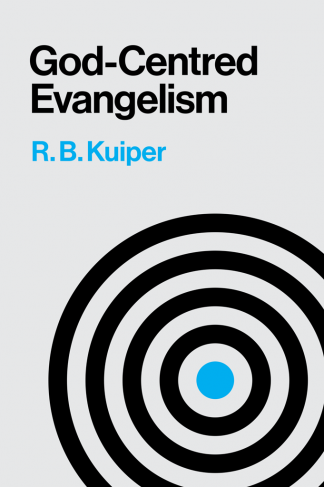
God-Centred Evangelism
A Presentation of the Scriptural Theology of Evangelism
price Original price was: $12.00.$5.00Current price is: $5.00.Description
Some thoughts from Iain H. Murray arising out of Alan Clifford’s Calvinus: Authentic Calvinism, A Clarification (Charenton Reformed Publishing, 8 Le Strange Close, Norwich, 1996), 94pp.1 This title from Alan Clifford is a monograph of twenty-six pages, plus end-notes, pages of quotations from Calvin, and refutation of some opposing views. It continues the discussion whether […]
John Murray, “The Free Offer of the Gospel” in Collected Writings, Vol. 4, pp. 113-32.
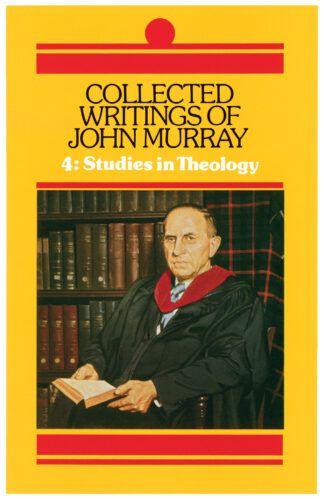
Collected Writings of John Murray
Volume 4: Studies in Theology
price Original price was: $40.00.$36.00Current price is: $36.00.Description
Some thoughts from Iain H. Murray arising out of Alan Clifford’s Calvinus: Authentic Calvinism, A Clarification (Charenton Reformed Publishing, 8 Le Strange Close, Norwich, 1996), 94pp.1 This title from Alan Clifford is a monograph of twenty-six pages, plus end-notes, pages of quotations from Calvin, and refutation of some opposing views. It continues the discussion whether […]
The words of the last named are very pertinent to the difference between Calvin and Amyraut: ‘there is a will [in God] to the realization of what he has not decretively willed, a pleasure towards that which he has not been pleased to decree. This is indeed mysterious, and why he has not brought to pass, in the exercise of his omnipotent power and grace, what is his ardent pleasure lies hid in the sovereign counsel of his will’ (p. 131).
- See Works of John Owen, vol. 6, pp. 521-29
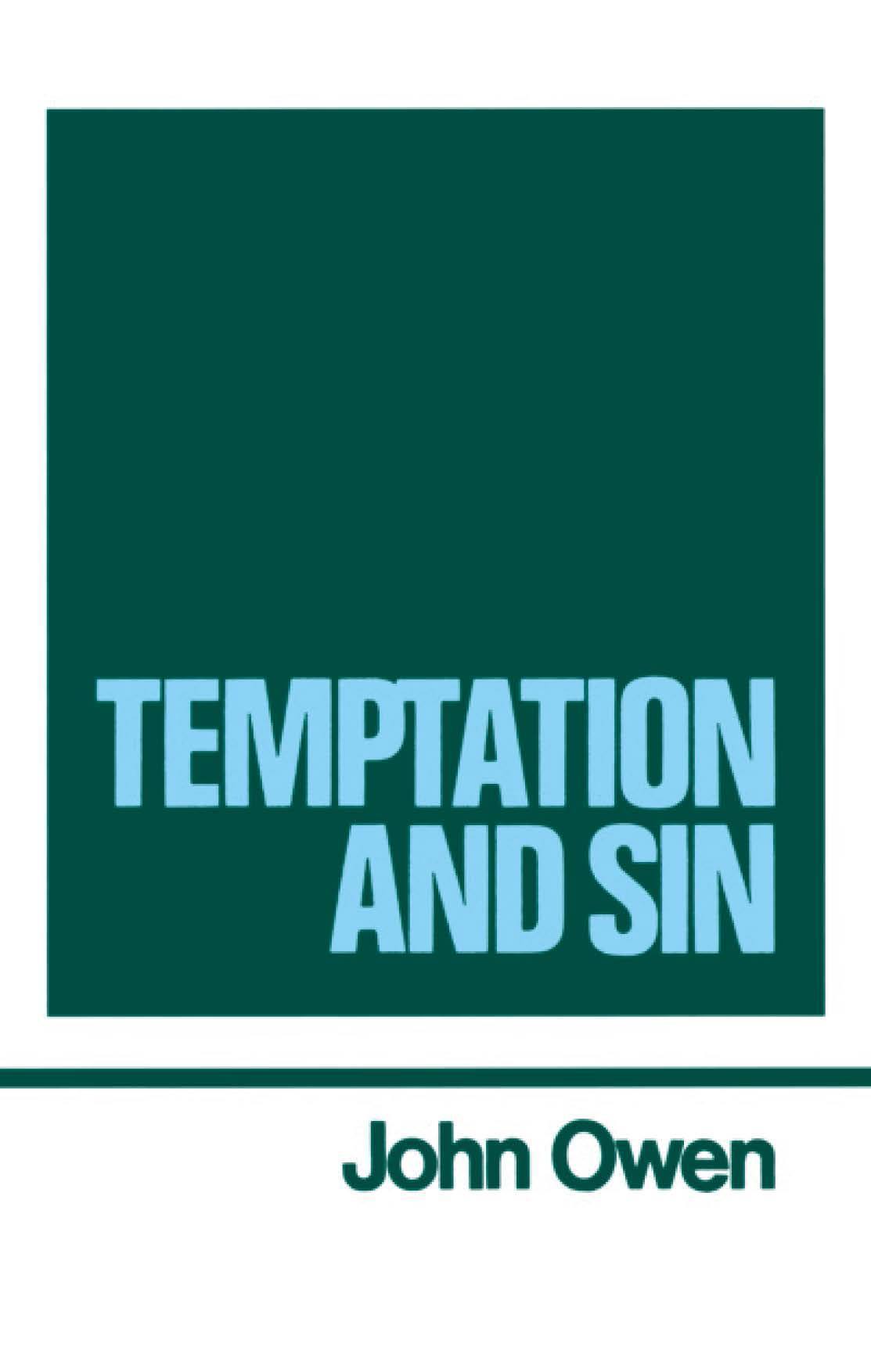
The Works of John Owen
Volume 6: Temptation and Sin
price Original price was: $28.00.$25.20Current price is: $25.20.Description
Some thoughts from Iain H. Murray arising out of Alan Clifford’s Calvinus: Authentic Calvinism, A Clarification (Charenton Reformed Publishing, 8 Le Strange Close, Norwich, 1996), 94pp.1 This title from Alan Clifford is a monograph of twenty-six pages, plus end-notes, pages of quotations from Calvin, and refutation of some opposing views. It continues the discussion whether […]
- A.A. Hodge, The Atonement ed. W.H. Goold (London: Nelson, 1966), pp. 351-2. In his opinion, Amyraldianism ‘fails to conciliate Socinians or Arminians, while it alienates true Calvinists’ and he quotes the view of the Methodist, Richard Watson, that ‘it is the most inconsistent theory to which the attempts to modify Calvinism have given rise’.
Latest Articles
The Death-Bed of John Knox: A Poem, by Anne Ross Cousin February 18, 2025
Anne Ross Cousin is best known as the authoress of the hymn, The sands of time are sinking. Its nineteen verses (in its original form) are based on the death-bed sayings of a remarkable seventeenth century Scottish preacher, Samuel Rutherford. What is not so well known is that Anne Ross Cousin put into verse some […]
First Things First January 6, 2025
The following article from the pen of A. W. Pink appeared in the January 1978 issue of the Banner of Truth Magazine, no. 172. It was the New Year message from Studies in the Scriptures, January 1939. The dawning of a new year is a fresh call unto each of us to put first things […]
